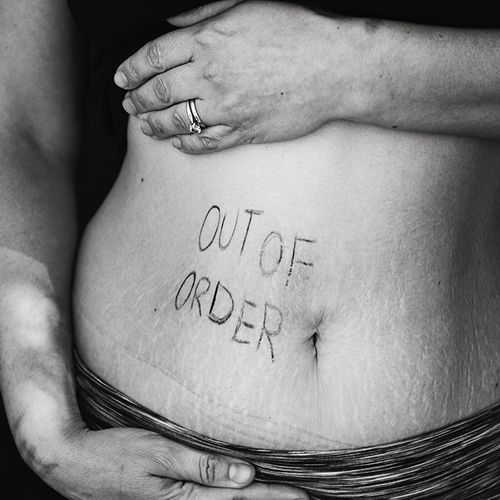Are you nervous about venturing too far from your bathroom for fear of a sudden attack of diarrhea? Or do you live in dread of your next spell of days-on-end constipation? Either way, the culprit could be irritable bowel syndrome (IBS).
This condition afflicts up to 20% of Americans-and two to three times as many women as men. Patients may experience constipation, diarrhea or both...plus abdominal pain, bloating and/or nausea. Symptoms may be constant...or flare up in response to specific triggers...or pop up at random. No medical tests can confirm IBS-nothing shows up in blood or stool samples, X-rays or even exploratory surgery to examine the digestive tract.
No one knows exactly what causes IBS, but research suggests four main components…
- Genetics. IBS tends to cluster in families.
- Inflammation. Many people have their first IBS bout after an intestinal infection... which causes inflammation in the gut (digestive tract)...which provokes physiological changes that render the gut vulnerable to certain triggers long after the infection is gone.
- Intestinal organisms. Billions of beneficial bacteria grow in the gut. With IBS, this "garden" may be altered through a change in the type or balance of bacteria present.
- Brain-gut link. The brain and gut "crosstalk." That's why anxiety can affect the digestive system—for instance, causing butterflies in your stomach when you're nervous.
New finding: Gut changes from IBS can cause depression. The gut has receptors for serotonin, a nerve communication chemical that promotes feelings of well-being. If the gut is unhappy, the brain often becomes unhappy.
If you have persistent symptoms, see a gastroenterologist. IBS is diagnosed by ruling out other possible causes of symptoms, such as a parasitic infection, celiac disease or colon cancer.
Flare-Up Prevention
Once a bout of IBS gets started, it is hard to quell—so it is best to keep symptoms from flaring up.
- Take a probiotic supplement to add "good" bacteria to the gut. Best is Bifidobacterium infantis, which may dampen the inflammatory response, improving regularity and reducing bloating.
Recommended: Nonprescription Align (800 208-0112, www.aligngi.com), one capsule daily. Try it for a month. If it doesn't help, stop. If it does help, continue indefinitely.
- Identify your food sensitivities. Certain foods trigger gut inflammation in certain people.
Common culprits: Chocolate, coffee, corn, dairy, eggs, nuts, onions, wheat. Pick one food, and eliminate it from your diet for five days to see if you feel better...then reinstate it, and see if you feel worse. Test foods one by one,swearing off those that bring on symptoms. If you have trouble identifying problem foods, consult a nutritionist.
- Move your body to get your bowels moving properly, too. Bloating and pain can make walking, even at a moderate pace, feel awkward-50 experiment with various workouts to find one that's comfortable.
- Reduce stress. Get enough rest. Relaxing: Have a weekly massage, practice yoga, go to the movies with friends, try a new hobby.
- Consider hypnosis. Studies suggest that hypnosis may help IBS patients.
Referrals: National Board for Certified Clinical Hypnotherapists (301-608-0123, www.natboard.com).
Help For Acute Symptoms
When IBS flares up, various treatments aim to relieve individual symptoms.
For constipation…
- First, try a fiber supplement. Best for IBS-related constipation is psyllium (in nonprescription Metamucil, Fiberall and Konsyl). Because fiber may worsen bloating, start with a low daily dose, even less than the product label calls for-for instance, one-half to one teaspoon of powdered Metamucil mixed with water. Work up over one month to three to six teaspoons per day in two divided doses. Continue indefinitely.
- Switch to a nonprescription laxative if fiber doesn't help. Most effective is polyethylene glycol (PEG) 3350, found in Miralax and GlycoLax, which pulls water into the bowel, adding moisture to stool so it passes more easily. Take one heaping teaspoon daily, dissolved in water, for as long as symptoms persist.
- Consider prescription medication if nonprescription laxatives don't help. The drug lubiprostone (Amitiza) increases secretion of fluid in the intestines, making it easier to pass stool. Side effects may include nausea, diarrhea and headache.
Caution: This drug has not been studied in women who are pregnant.
For diarrhea...
- Take a nonprescription diarrhea drug. I recommend Imodium Advanced, which combines loperamide (the active ingredient in regular Imodium) with simethicone, a gas-reducer. The label says to take two tablets at the first sign of diarrhea plus one tablet after each loose stool. If that does not help, ask your doctor if you should try a higher dosage.
- Try fiber. Take one teaspoon of psyllium. If diarrhea improves within 24 hours, continue taking psyllium daily. If symptoms worsen after you take the one-teaspoon dose, try a half-teaspoon the next day. If diarrhea again worsens or gets no better, discontinue use.
For additional symptoms…
- Ease pain. Take over-the-counter or prescription pain medication...or one or two enteric-coated peppermint oil capsules three times a day.
- Minimize bloating. Take one or two activated charcoal pills 30 minutes after meals. Do not use within two hours of taking other medications, as charcoal can interfere with other drugs.
- Reduce nausea. Take 1 gram (g) to 15 g of ginger in capsule form daily, in two divided doses. Also use acupressure-with a fingertip, firmly press for several minutes on the inside of either forearm, one inch above the wrist crease, in the center between the two tendons.
